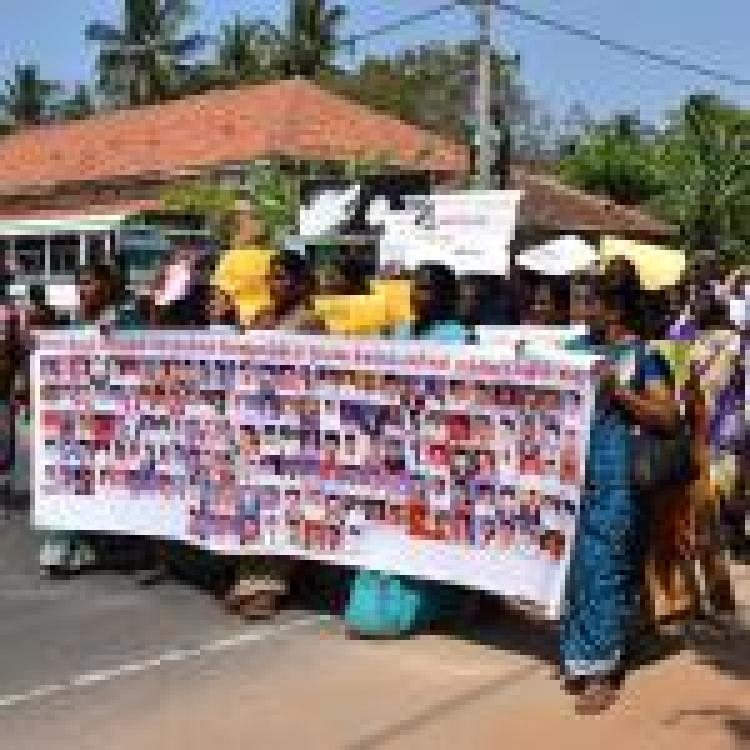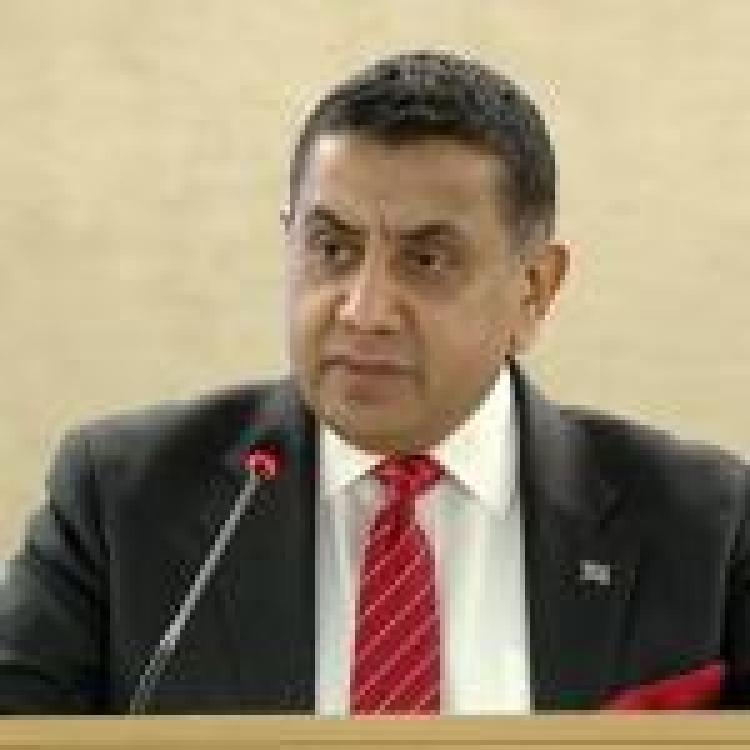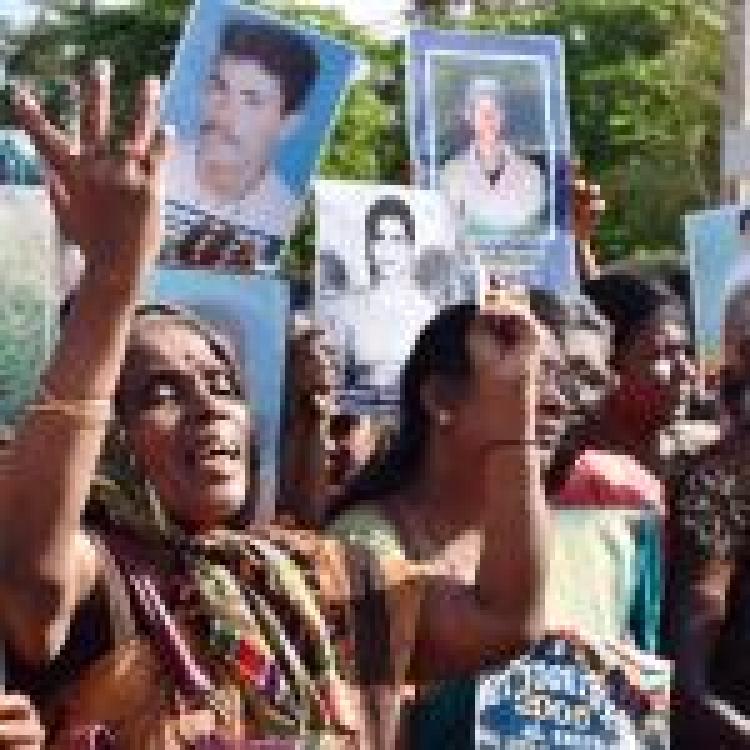Less than a day after Sri Lanka's ministry of foreign affairs agreed to the co-sponsoring of a roll-over UN resolution, the president Maithripala Sirisena said he wanted it stopped.
Sirisena said he would be sending three of his representatives to the Council to argue that Sri Lanka should be allowed to 'solve it's own problems', including former Ministers Dr. Sarath Amunugama, Mahinda Samarasinghe and the new Northern Province Governor Suren Raghavan
"It is a decade since we have established peace in this country," Sirisena told reporters in Colombo, AFP reported. "I want to tell them (the UN) not to pressure us."
"What I want to tell them is don't dig the past and re-open old wounds. Let us forget the past and ensure that we all live in peace."
![]()
UN resolution 30/1 called for a hybrid mechanism to credibly investigate and provide accountability for mass atrocities committed during the final stages of the armed conflict. It was due to be debated at this UNHRC session in Geneva following a two year extension granted in 2017.
The Sri Lankan president and prime minister have repeatedly rejected calls for justice and accountability, instead reassuring Sinhala voters that military personnel would not face prosecution by international judges.
Last year, reiterating his rejection of war crimes allegations, Sirisena said the former foreign minister, Mangala Samaraweera had been sacked for his role in agreeing to the co-sponsoring of the resolution.
Sri Lanka has not been accused of committing any ‘international war crimes’ said Sirisena, adding that he will never allow the participation of foreign judges in the mechanism to investigate allegations of human rights violations."
“Therefore I told them not to send foreign judges to my country. There will be no international war tribunals or electric chairs,” he added.
“Some people are incorrectly defining that we have been accused of international war crimes. At no point has the Human Rights Council said that we have committed international war crimes. There is clearly no such thing.”
Read more: Sri Lanka not accused of war crimes says president, Mangala sacked as FM for cosponsoring resolution
In an alarmingly candid statement published today the Ministry of Foreign Affairs said it would be co-sponsoring a roll over resolution at the UN Human Rights Council as "this strategy will prevent international war crimes allegations being continuously leveled against Sri Lankans through strengthened ownership of the implementation process."
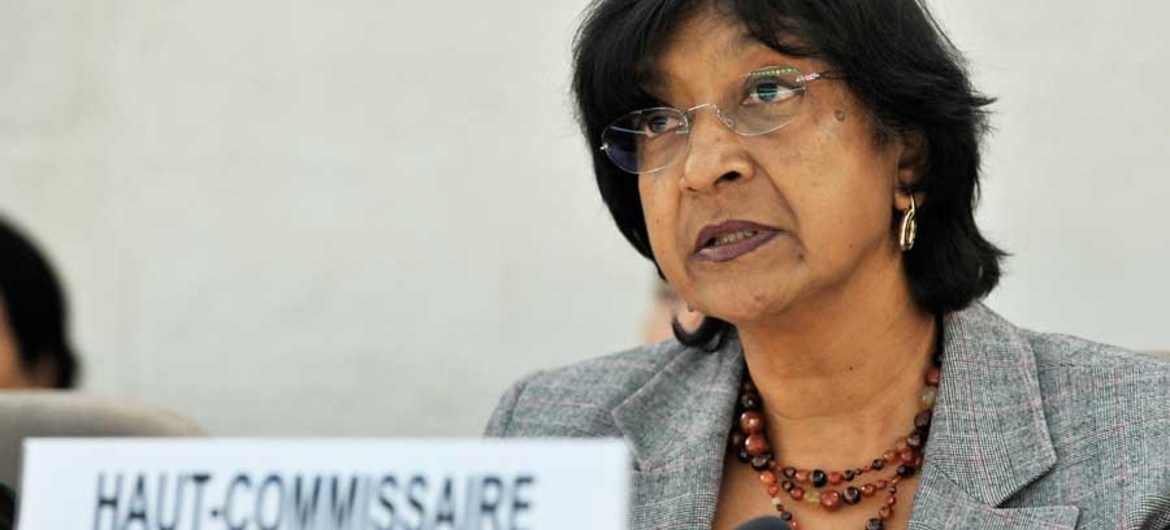
The Sri Lankan government's sincerity in implementation has been widely questioned by Tamil organisations and human rights groups worldwide, as well as the former UN High Commissioner for Human Rights, Navi Pillay, who have condemned the lack of meaningful progress on key concerns.
Pointing to Colombo's attempt to further delay the implementation of the co-sponsored UN Resolution 30/1 by talking of a 'truth and reconciliation commission' just days before the UN Human Rights Council was due to convene and review the resolution, Pillay said, “the key promises of justice and accountability are missing in the Prime Minister’s message."
"I am disappointed to learn that on the eve of the interactive dialogue on the Office of the United Nations High Commissioner for Human Rights’(OHCHR) report on Sri Lanka in the UN Human Rights Council, the Government of Sri Lanka is resorting to yet another delaying tactic to escape......implementation of Resolution 30/1,” said Pillay.
Read more: Former UN Human Rights Chief slams Sri Lanka's 'delaying tactic'
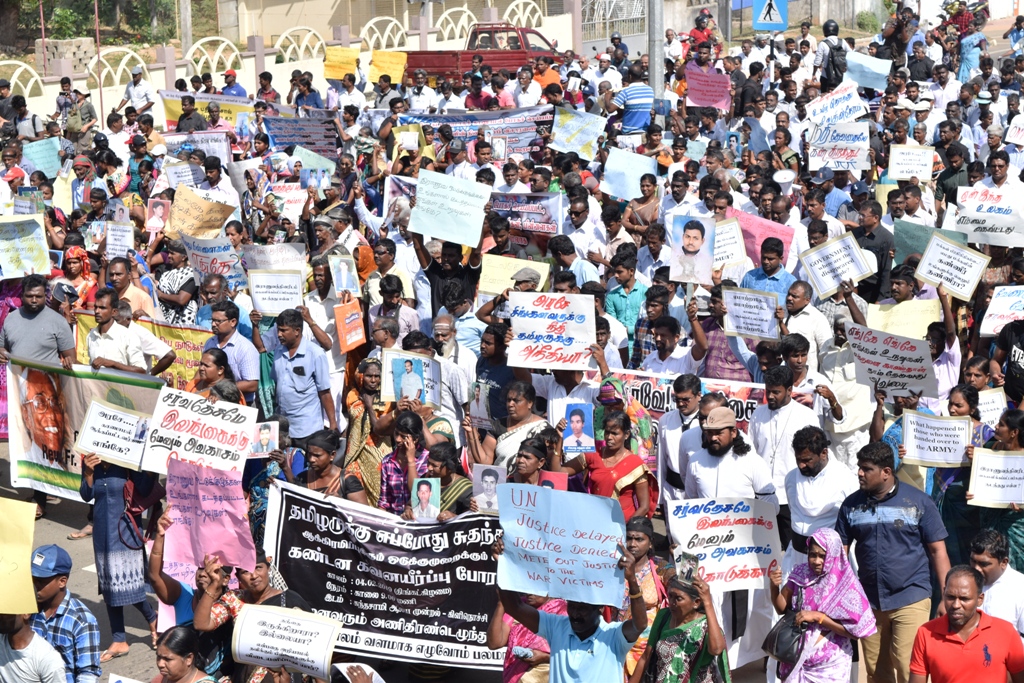
Hundreds protest in Kilinochchi on February 25, 2019
Tamil organisations across the North-East and diaspora have condemned the prospect of Sri Lanka being granted a further two years to implement the resolution, highlighting the state's long history of failure to provide justice for Tamils and arguing Sri Lanka had no genuine intention of implementation.
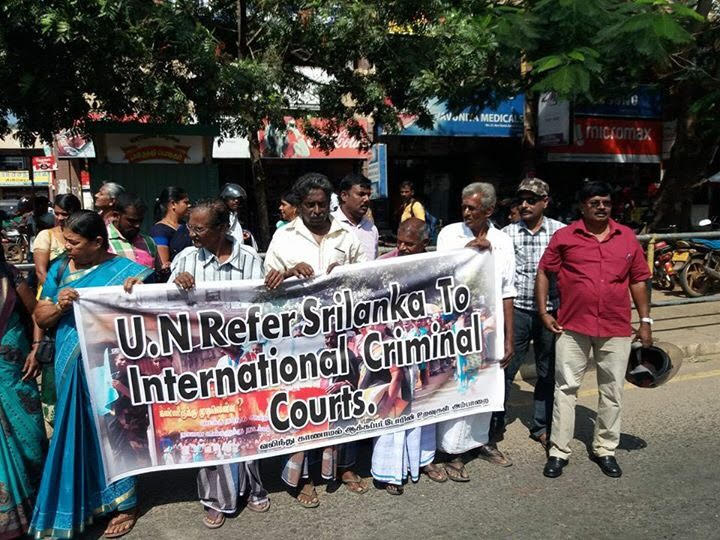
Families of the disappeared protesting in Vavuniya on January 31, 2019
A mass rally was held in Kilinochchi on February 25, the opening day of the Council's session, with hundreds of families of the disappeared demanding justice through an international mechanism for genocide. Families condemned the granting of more time to the Sri Lankan government arguing that nothing had been achieved so far. Hundreds of businesses across the North held hartals in solidarity with the protests.
Read more:
Families of disappeared hold mass rally against resolution extension
Mass hartals as businesses express solidarity with families of disappeared
Criticising the decision to grant Sri Lanka more time, former chief minister of the Northern Province, C V Wigneswaran, argued that nothing has been gained by extra time given so far.
"There is a need for the UN to take immediate actions regarding this, because nothing came out of giving time so far. They said that they will repeal Prevention of Terrorism Act but they haven’t done anything yet. If they won’t do a small thing like that, do you think they would fulfil the rest of it?" Wigneswaran said. "Giving time won’t bring anything to Tamils. It will only benefit the government.
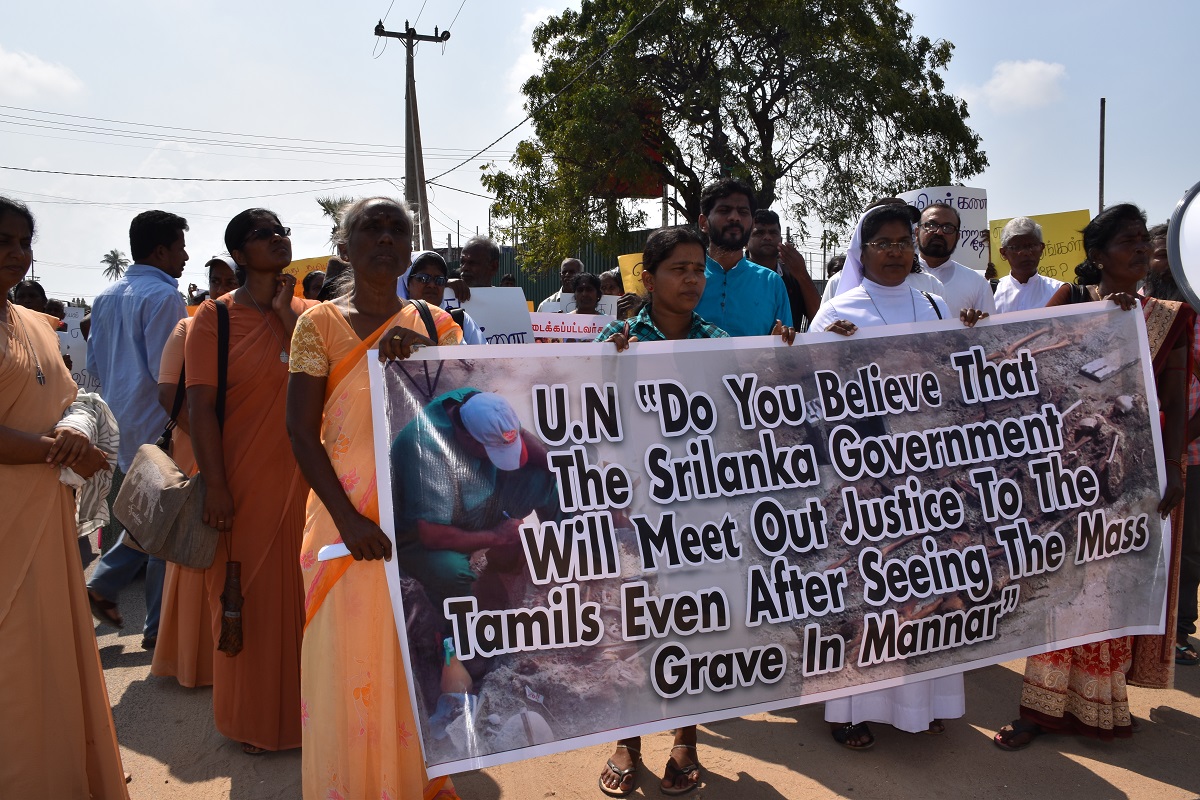
Mannar families of disappeared protest against UN resolution extension (28 February 2019)
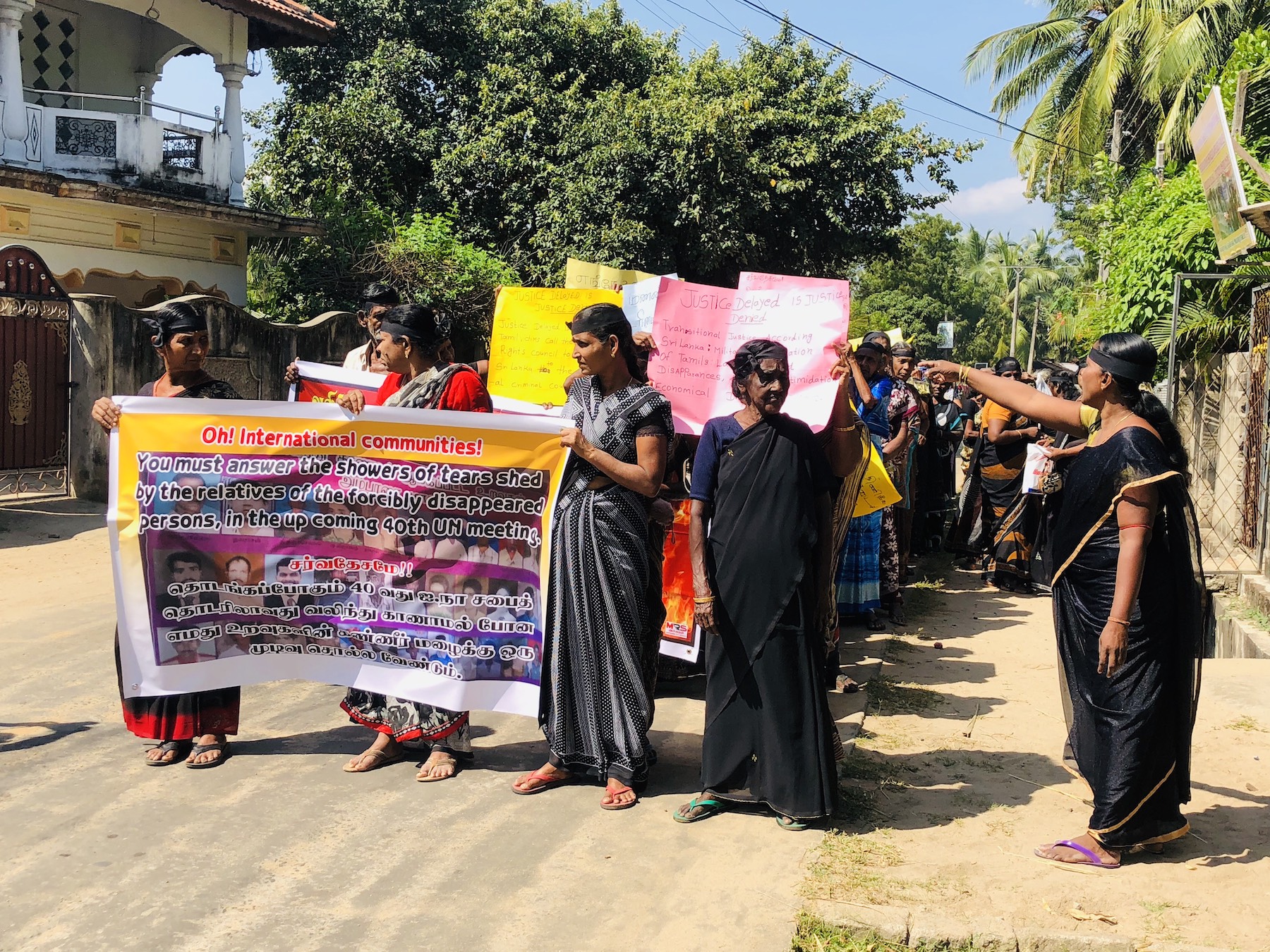
Families of disappeared in Amparai protest against UN extension (27 February 2019)
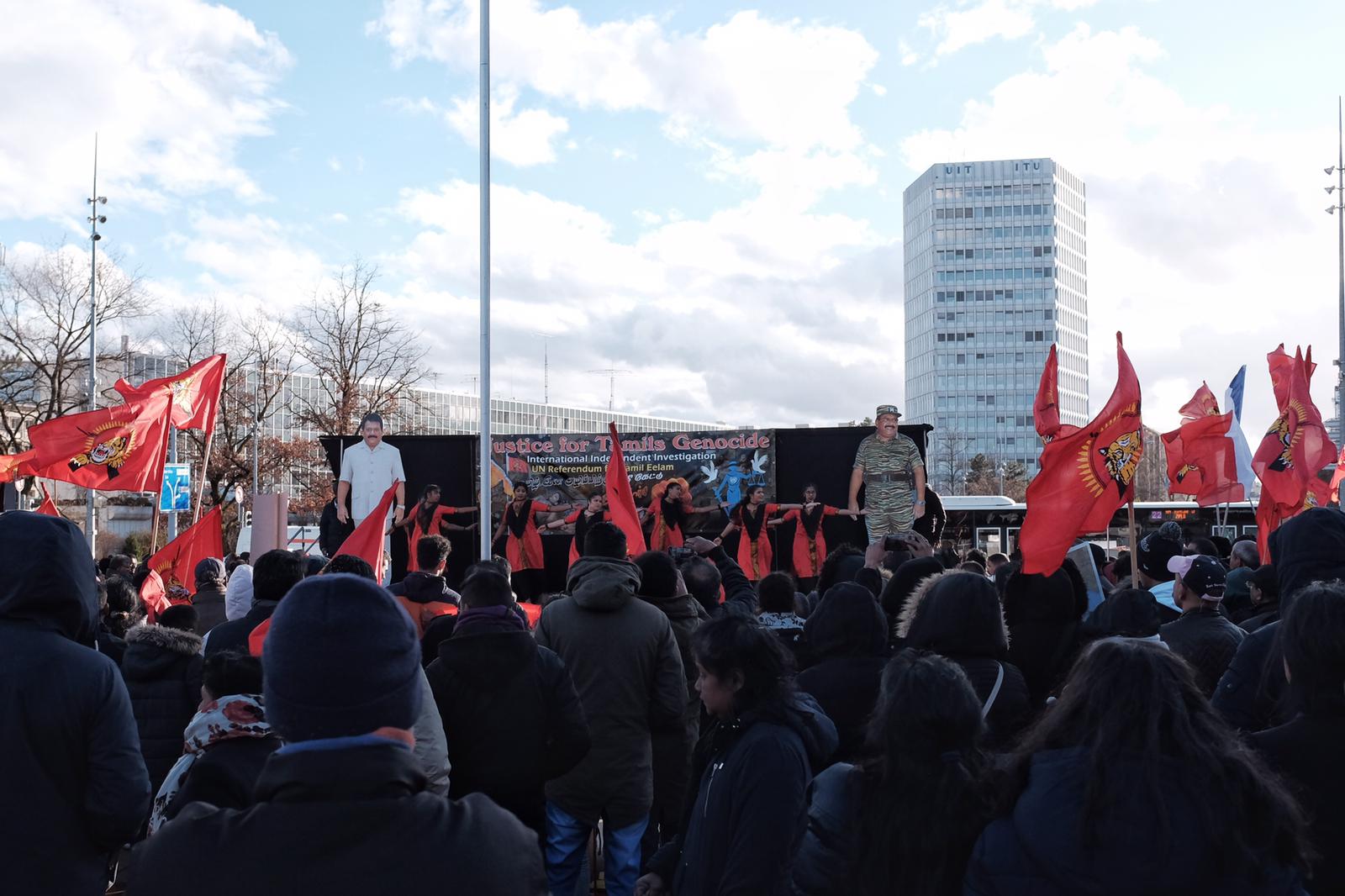
The demands of Tamils in the North-East were echoed by diaspora Tamils who held a demonstration in front of the UNHRC in Geneva, demanding justice for genocide through an international mechanism.
Condemning the prospect of a further time extension being granted to Colombo to deliver on its co-sponsored resolution, Tamils called for a referral to the International Criminal Court (ICC) and a UN supervised referendum for an independent state of Tamil Eelam.

